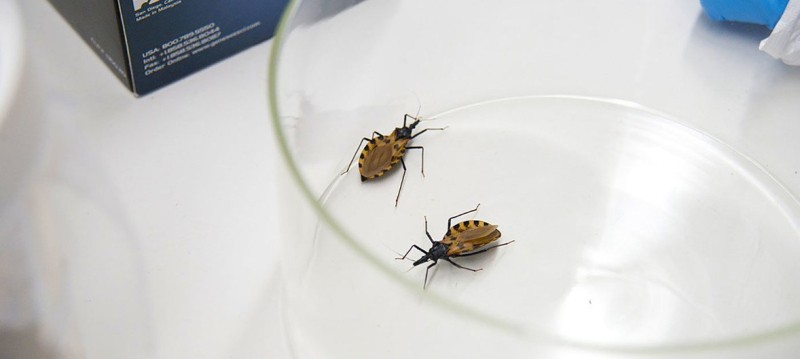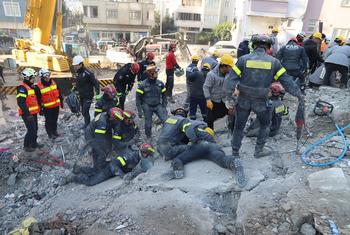Play video

CDC/David Snyder Triatomine bugs, found mainly in Latin American and the southern United States, are known to cause Chagas disease.
“UNITAID calls upon the global health community and governments to make Chagas disease a priority and support ongoing efforts to prevent mother-to-child transmission and improve access to tests and treatments,” said Herve Verhoosel, UNITAID’s head of communication.
Tweet URL
“Together, by integrating it into primary health care and systematically screening mothers and babies, we can make Chagas a disease of the past,” he said, adding that the global day aims at raising awareness.
First commemorated in 2020, this year’s theme, “Time to integrate Chagas disease into primary health care”, reflects a call to action to fight the spread of the disease, which affects up to 7 million people worldwide.
Transmitted by ‘kissing bugs’
“If not detected early, Chagas can cause serious problems in the heart and digestive systems and can even be fatal,” WHO Director-General Tedros Adhanom Ghebreyesus said, adding that most of those affected are from low-income communities with limited access to health care.
However, the infected majority have no symptoms or mild symptoms that can go undetected for as long as decades, UNITAID said. Chagas can cause cardiac, neurological, and digestive problems if left untreated, Mr. Verhoosel said.
As such, it is often called the “silent or silenced disease”, making it essential to raise awareness to improve the rates of early treatment and cure, he said.
Almost every continent affected
Originally observed in rural areas, the disease has now moved to urban settings in 44 countries spanning every continent, apart from Antarctica. Up to 75 million people live in areas of exposure, putting them at risk of infection, UNITAID said.
Detection rates are often very low in many countries; only up to 10 per cent of people living with the disease receive a diagnosis and 1 per cent receive effective treatment.
“In Latin America, where it is endemic to 21 countries, Chagas disease is the leading cause of death from a parasite, ahead of malaria,” Mr. Verhoosel said.
To address Chagas disease, it is essential that it be integrated into primary health care and that such services reach people who need them, UNITAID said. Cross-sectoral approaches are also needed, including universal health coverage, vector control, and access to testing and treatment.
Prevention efforts
In collaboration with regional and global health partners, UNITAID is working to prevent mother-to-child transmission and to improve access to affordable tests and treatments, UNITAID said. Through projects like CUIDA Chagas and its partnership with the Pan American Health Organization, UNITAID seeks to identify better, shorter ways to test and treat Chagas disease, and advance the elimination of mother-to-child transmission of this neglected disease, the agency said.
The CUIDA Chagas project is an innovative international initiative focusing on testing, treating, and caring for people affected by Chagas disease in Bolivia, Brazil, Colombia, and Paraguay. Through an approach that combines implementation and innovation, community engagement and market interventions, CUIDA Chagas seeks to contribute to the elimination of vertical transmission of the disease.
Learn more about Chagas disease here.

Türkiye-Syria Earthquake
DONATE!
Emergency and search-and-rescue teams have deployed to assess and prioritize urgent needs and to provide life-saving assistance following the devastating earthquake near the Türkiye-Syria border.

